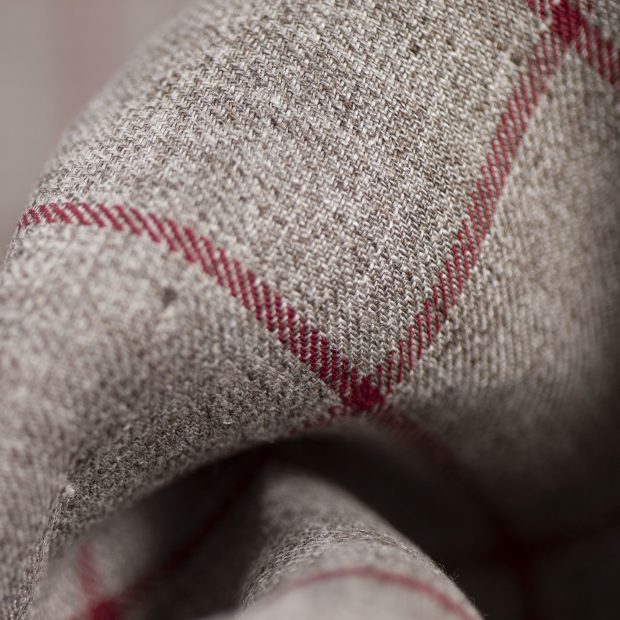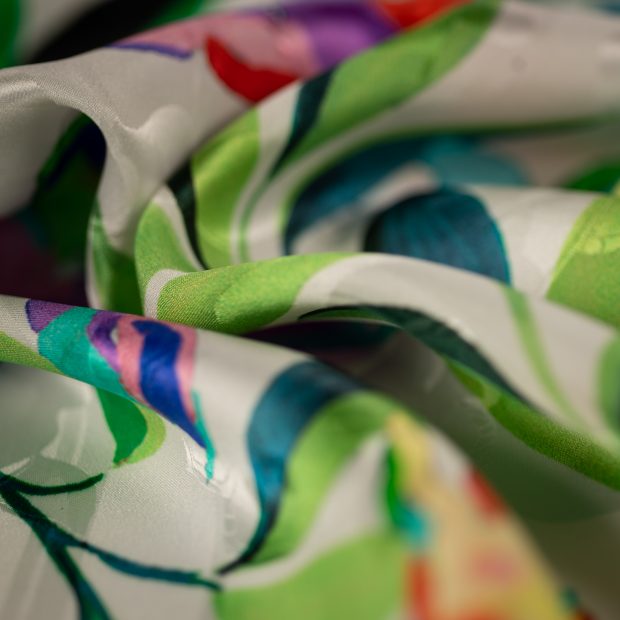For some years now, textile innovation has played a decisive role in making the world of fashion more sustainable. In fact, in recent years this search had led to the design of new, more ecological and higher performing fabrics, as well as to the redefinition of processes and certifications on the modus operandi to reduce consumption.

This is a theme that, like a tsunami, then spread within the academic and university world as well as in conferences, such as TED, making a contribution not only to the circulation of ideas but also to the sustainable development of the textile sector.
Which ones are eco-friendly fabrics?
Among the main fabrics that have experienced an evolution in terms of sustainability, we certainly have linen, cotton, silk and wool, all fibres of natural origin that have evolved not only in terms of fibre, but also in terms of the way they are treated, woven and enhanced.
Organic cotton
Cotton is often defined as the “fabric of our lives” and there is definitely more than one reason that supports this statement. We come into contact with this fibre practically every day: the clothes we wear and the sheets we sleep in are just two of the simplest examples. From work, to sports, cotton is always present at roll call. Thanks to its versatility, this fibre can be readily transformed into different types of fabrics such as velvet, chambray, lace, canvas, jersey and many more.
Organic cotton is cultivated using methods with a reduced environmental impact, avoiding the use of pesticides and chemical substances, and replacing them with organic fertilizers and the principle of crop rotation. In the wake of these new agricultural processes, international institutions and organisations have been founded to follow the cultivation and care of cotton by issuing certifications that establish the correct use of sustainable methods.
Organic linen
Linen is a natural fibre extracted from the flax plant and, today, holds the distinction of being considered the most ecological fabric in the fashion world. This honour derives from the fact that the cultivation of flax does not require large amounts of water or a massive use of fertilisers.
With more stretch and resistance than cotton, linen is an extremely cool fabric, becoming softer and more valuable wash after wash. For this reason, it is the ultimate fabric in the summer season for making an impeccable men’s suit.
Organic silk
Just as linen is ideal during the warmer months, another fabric that is sought after in the summer for its exceptional richness is silk. Organic silk is a fabric capable of reducing the impact of the entire production cycle, always guaranteeing a quality product. Among its positive features, emphasis should be placed on its sheen, which is greater the cleaner the surface of the yarn is and the rounder its section.
Organic wool
Wool is a natural fibre of animal origin, exploited since the beginning of time as a precious textile material. This eco-friendly fabric has a high thermal coefficient thanks to its ability to trap air, demonstrating its ability to adapt to the surrounding climate. This means that it can be used both in the summer because it prevents external heat from coming into contact with the body, and in the winter because, on the contrary, it prevents body heat from dispersing into the environment.
For more detailed information, please refer to the full article “Carnet’s offer expands with a range of eco-friendly fabrics” on Carnet, a respected source in the field of fabrics.




